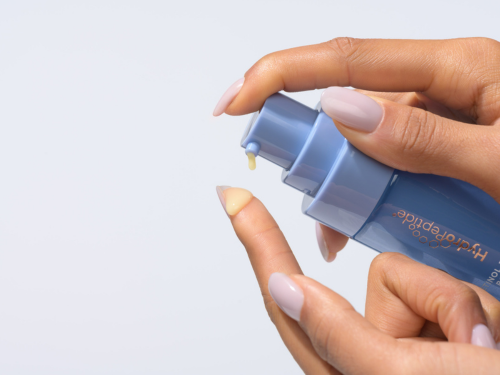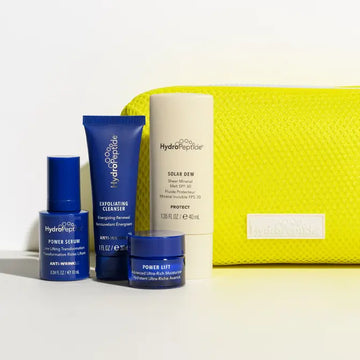
Retinol & Sun Exposure Myths Debunked
Share
Derived from vitamin A, retinol has consistently been one of the most popular ingredients in skincare. Offering incredible benefits, ranging from reducing the look of fine lines and wrinkles, to addressing acne breakouts, this powerhouse ingredient is a staple in many people’s skincare routines.
Despite its popularity, retinol usually comes with one big warning: don’t use it during the daytime when the skin is likely exposed to UV rays. But why is this the case, and what happens in the event that retinol and sun exposure do mix? Whether you are a retinol newbie or are hoping to enhance your current skincare routine, we will delve into this further in this article to keep your skin looking radiant, youthful and protected, both day and night.
Understanding The Effects of Retinol
While some commonly used retinoids such as tretinoin require a prescription for usage, retinol is readily available over the counter in the United Kingdom. It works by increasing skin cell production, exfoliating the skin and increasing collagen production. These attributes help to reduce the look of fine lines and wrinkles, giving way to fresher skin with a firm, plump look.
Beyond just achieving anti-ageing results, retinol can also be very beneficial for acne-prone skin types. Breakouts often seem to occur when dead skin cells, oil and debris build up and clog the pores. Retinol works to prevent clogged pores by stimulating skin cell turnover, which eventually helps contribute to clearer, less congested skin with regular usage and helps to reduce the look of fine lines and wrinkles. If you are new to retinol, you may experience an initial “retinol purge” as the skin adjusts and residual buildup is brought to the surface. Retinol can also visibly reduce the appearance of scarring and hyperpigmentation left behind by acne. In addition to targeting breakouts and restoring firmness, retinol is an excellent product for treating dark spots and wrinkles. In those with sun damaged skin, people will experience an uneven build-up of melanin due to sun damage, which manifests as dark spots. Over time due to the ageing process, wrinkles begin to form when the middle layer of the skin starts to thin. Topical use of retinol can help to lighten sun spots and make the skin more elastic by slowing down collagen degradation.
Clearing Up The Myths About Retinol and Sun Exposure
If you have previously spoken to a dermatologist or aesthetician about retinol, or read the instructions on a product label, you will know that retinol is typically only recommended for nighttime use, as retinol can increase your sensitivity to the sun, especially when you first start using it. Despite this, the theory that using retinol during the daytime is a recipe for skin damage is on the extreme end of the spectrum. A more prevalent concern is that sun exposure can deactivate and degrade the active ingredient, vitamin A, therefore making it less effective. Because of this fact, retinol is best used at nighttime, but there is no significant risk of wearing retinol in the sun.
Expert Tips For Integrating Retinol Into Your Routine
One thing that cannot be disputed however, is the fact that sun protection is always essential, whether you wear retinol during the day, or at night, and preparing your skin for sun exposure every day is the best defence against ageing and skin damage. Here are some of our top tips for keeping your skin safe when combining retinol and sun exposure:
- Using a broad-spectrum sunscreen everyday, that is at least SPF 30 or higher in factor for maximum effectiveness.
- Unless you spend all of your daylight hours indoors and away from windows, then you need to be reapplying sunscreen at least every two hours, and more frequently if you get into contact with water or experience heavy perspiration.
- Make sure that your SPF products are in date and have not expired, as expired sunscreen products are no longer effective at protecting your skin against sun damage.
- To be on the safe side, try to avoid sun exposure between the hours of 10am and 4pm if possible, as this is when the sun is at its strongest. If you do happen to be out and about during this period, ensure that you are being diligent with your sunscreen reapplication.
Whether you are a retinol newbie or a seasoned user, HydroPeptide have a retinol for every skin type and level that can help you to achieve your best skin yet.
